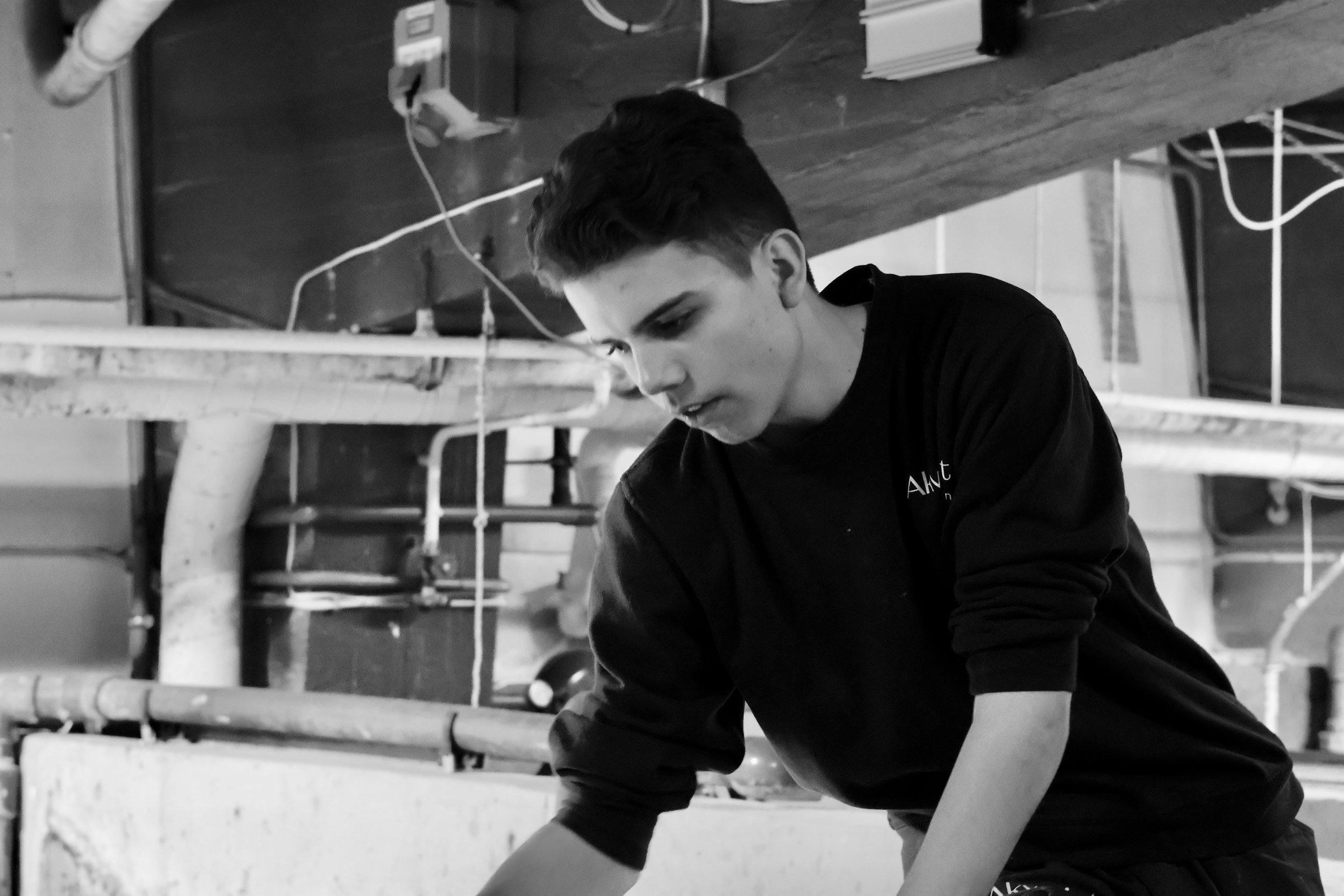Recycling for Change
Ensuring the proper segregation of different types of waste is key to ensure that more waste is recycled and does not end up in landfills or nature. Recyclable exchange stations, where plastic waste is exchanged for coupons or cash is one of the solutions to encourage people to better segregate. The port of Cagayan de Oro is piloting this solution with WWF and BEST.
Picture this: your discarded plastic bottles, old newspapers, and seemingly useless tin cans becoming part of a unique program where they are not only saved from piling up in landfills, but are transformed into valuable assets. This is happening right now in the Philippines, thanks to an innovative program run by Basic Environment Systems and Technology Inc. (BEST).
In the Philippines, over five million tons of trash go into landfills every year. This is a waste of a lot of potential energy, space and resources that could be reused or upcycled into new things. This is something Vince Mercado, President and Managing Director of Extra Philippines, and his mother company, BEST, is eager to change through their “Trash to Cash” program. Since its launch in 2001, they have been challenging the status quo, viewing waste not as an inconvenience, but as a valuable asset that can benefit us all.
By combining customer loyalty and waste disposal management, this groundbreaking program is not just about waste reduction. It is about changing the very way we see and handle waste. By transforming trash into rewards, this initiative is reshaping people's perceptions about waste. Each recyclable material is given a specific number of points, which can be traded for various items, such as goods, services, basic necessities, and even online coupons for bills and shopping. “Cash back is really driven by giving people the capability to earn additional income and to be able to see waste differently,” says Razon.
Partners for Change
The segregation of waste and ensuring that waste can be recycled or upcycled is key to reduce plastic waste leakage in nature and improve the circular economy. The port of Cagayan de Oro is aware of this and decided to pilot the BEST solution, with the support of the WWF and Grieg Group “Clean Ports, Clean Oceans: Improving Port Waste Management in the Philippines” project, funded by the Grieg Foundation.
BEST only accepts trash that can be recycled or upcycled, like plastic waste such as pet bottles, old containers and milk tea/coffee bottles. Every accepted recyclable material has a corresponding partner industry which uses them as raw material or resources for their own products. With the combined efforts of WWF-Philippines and the Philippine Ports Authority (PPA) in Cagayan de Oro, the program has already collected and recycled around 400 kilograms of plastic waste in a few months.
Core Suan, an Environment Specialist, shared that the partnership intensified compliance to Republic Act 9003 or the Ecological Solid Waste Management Act of 2000. “It strengthened the 3RS – Reuse, Reduce, Recycle, and we were able to fully utilize our material recovery facility. What I find amazing about this program is that everyone is able to participate and take part,” Suan says.
The Community So Far
With everyone coming together for a good cause, the program is now seeing better results and is creating ripples of change within the community. In Cagayan de Oro, Port Maintenance Supervisor of OroPort Dyan Demellites shares how the program impacts their daily operations in waste management.
“We are very thankful to BEST because we have less residual waste to throw into the landfill. When we are able to sort plastics and recyclables, our residual waste and waste from the ships are reduced. It’s also a great help to our finances since it means paying less to the landfill,” she said.
The program has touched the lives not only of the “eco-warriors”, but also of their own staff. As a Logistics Officer at BEST, Sheldon Rey Sabello was so inspired by the advocacy that he started to influence his family and friends to take part in the program as well. “It made me learn a lot and it changed my perspective about waste. BEST taught me that trash can be segregated and still has value,” Sabello shared.
By promoting environmental sustainability and community involvement, the “Trash to Cash Back” program inspired individuals to become eco-champions and agents of positive change in their own little way. It has created a sense of community and environmental consciousness that called people to action, and is a reminder that by working together, we can make a difference in saving the environment while helping the community – one recyclable at a time.
Related stories
STORIES FROM OUR PRIORITY AREAS
All · Children & youth · Music & culture · Health & research · Climate action · Social impact investment








